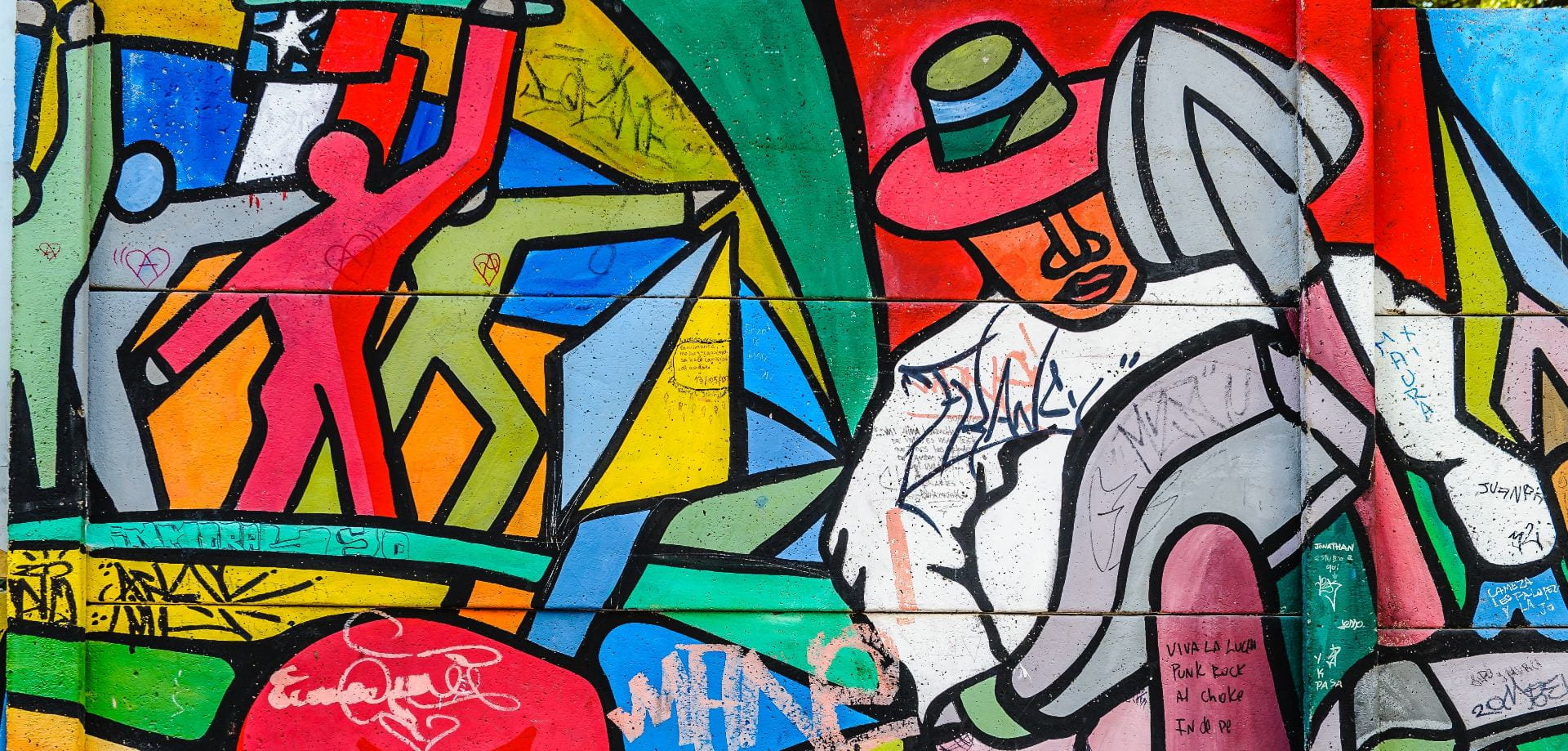
Andrea Ballestero
Andrea Ballestero is Associate Professor of Anthropology at the University of Southern California. She is also Director of the Ethnography Studio. Her book A Future History of Water (Duke, 2019) examines how government officials and NGOs in Costa Rica and Northeast Brazil differentiate between water as a human right and water as a commodity. She is also co-editor of Experimenting with Ethnography: A Companion to Analysis (Duke University Press 2021), a collection of experimental protocols that expand the meaning of ethnographic analysis. Dr. Ballestero is currently writing a book that explores cultural imaginaries of the underground in Costa Rica, focusing on how the social world is expanding downwards into subterranean space. Her works can be found at https://andreaballestero.com/

Diana Bocarejo
Diana is a Colombian anthropologist whose work links the analysis of everyday politics with practices of environmental care. Thinking with water rhythms and the quests to protect campesino livelihoods, she embraces the ambiguities and challenges of local life stories. Some of her latest work along Río Magdalena includes: “El Viudo De Pescado”: Living Waters, Living Food in Gastronomica (2022), and Un río infraestructurado: la gestión comunitaria entre el cemento y los movimientos del agua, Revista Colombiana de Antropología, 2022.
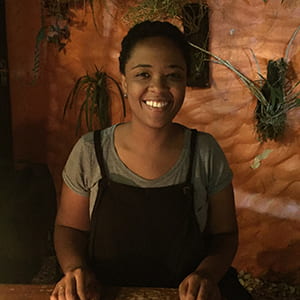
Rosana Castro
Rosana Castro is a faculty member in the Institute of Social Medicine at the State University of Rio de Janeiro (UERJ). Working in the interstices between STS and Anthropology of Pharmaceuticals, her research focuses on the processes of capitalization of racial and health inequities in Brazil by national and multinational actors involved in the field of global clinical trials. Her publications on this topic include “Black skin, white coats: racism, body and ethics in anthropological fieldwork.” More recently, she has been interested in investigating the institutionalized process of disqualification of scientific evidence and defense of “liberty” practices in the (de)regulation of prescription and use of pharmaceuticals in Brazil during the Covid-19 pandemic. In this area, she has recently published an article in Horizontes Antropológicos entitled “Necropolítica e a corrida tecnológica: notas sobre ensaios clínicos com vacinas contra o coronavírus no Brasil.”

Vivette García-Deister
Vivette García-Deister is a Professor of the Faculty of Sciences of the National Autonomous University of Mexico (UNAM). Based in the S&TS lab, her research focuses on the history of race science and the epistemologies of biomedical and forensic genetics, as informed by ethnographic methods and the philosophy of science in practice. Her research assesses the impact of biomedical and forensic genetics on issues of racism, health, and justice in Mexico. She has been published in international academic journals in the global north and in Latin America such as BioSocieties, and in non-academic spaces such as SLATE Future Tense and Este País. Recent work includes “Mexican Samples, Latino DNAs” in the journal Engaging Science, Technology, and Society
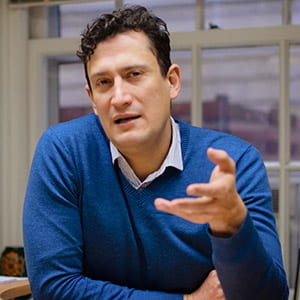
Pablo F. Gómez
Pablo F. Gómez, Associate Professor in the Department of Medical History and Bioethics, and the Department of History, is interested in histories of knowledge-making, and health and corporeality with a particular focus on the histories of Latin America, the Caribbean, and the African diaspora. Gómez is currently working on a history of the quantifiable body emerging in slave trading circuits in the sixteenth and seventeenth century. His book The Experiential Caribbean: Creating Knowledge and Healing in the Early Modern Atlantic deals with these themes. He is also collaborating in several projects largely related to theorization of archives, legal history, and global histories of science and Medicine and in Latin America from which came a special issue of the journal History and Technology. He has been the recipient of, among others, a Davis Center Fellowship, a Sawyer seminar award, and two ACLS Fellowships.
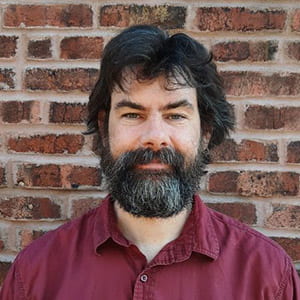
Kregg Hetherington
Kregg Hetherington is a political anthropologist based at Concordia University in Montreal. He is the author two books on agrarian movements in Paraguay, Guerrilla Auditors: the politics of transparency and neoliberal Paraguay (2011), and The Government of Beans: regulating life in the age of monocrops (2020), both from Duke University press. He also edited the volume Infrastructure, Environment and Life in the Anthropocene (2019). Connecting all of these projects is an interest in how facts are produced in legal and technical terms as people struggle to generate survivable worlds. As director of the Concordia ethnography lab, he is also interested in the experimental and collaborative production of ethnographic knowledge.

Emily A. Maguire
Emily A. Maguire is an Associate Professor in the Department of Spanish and Portuguese at Northwestern University, where she specializes in literature of the Hispanic Caribbean and its diasporas. The author of Racial Experiments in Cuban Literature and Ethnography (University Press of Florida, 2011; 2nd edition, 2018), her articles have appeared in Revista de Estudios Hispánicos, Small Axe, A Contracorriente, ASAP/Journal, and Revista Iberoamericana, among other places. She is currently finishing on a second book project on questions of temporality in recent Caribbean science fiction.
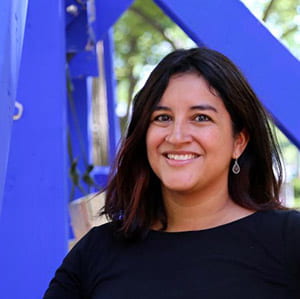
Eden Medina
Eden Medina is Associate Professor of Science, Technology, and Society at MIT. Her research uses the history of science and technology as a way to understand processes of political change, especially in Latin America. She is the other of Cybernetic Revolutionaries Technology and Politics in Allende’s Chile (MIT Press, 2014). Medina’s current research studies how nations use science and technology to address histories of dictatorship and state violence and how science and technology intertwine with processes of truth, justice, and repair. More broadly her research studies how political projects shape, and are shaped by, new technological capabilities and forms of knowledge that are deemed scientific.
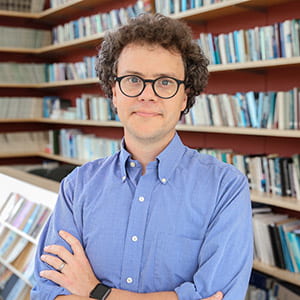
Alex Nading
Alex Nading is Associate Professor of Anthropology at Cornell University. His research examines health and environmental change in Latin America. His first book, Mosquito Trails: Ecology, Health, and the Politics of Entanglement (University of California Press, 2014), was an ethnographic study of the efforts of front-line community health workers to manage dengue fever epidemics in urban Nicaragua. Nading’s current research includes a multi-year study of environmental health activism, toxic exposure, and climate crisis on Nicaraguan sugarcane plantations, as well as a collaborative project that brings artistic, labor, and educational organizations to examine the multiple meanings of “quality of life” in periurban Managua.
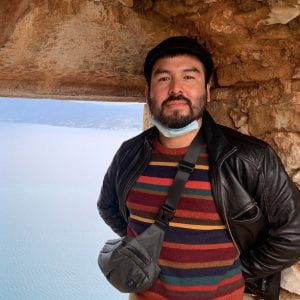
Eduardo Romero Dianderas
Eduardo Romero Dianderas is the 2022-23 Mellon Sawyer Postdoctoral Fellow in the Politics of Environmental Knowledge at the University of Southern California. He is a Peruvian anthropologist specializing in the study of media technologies, technical infrastructures and rainforest governance in Peruvian Amazonia. In 2022, he received a PhD in Sociocultural Anthropology from Columbia University. His doctoral dissertation, Calculating Amazonia, examines how various kinds of technocratic abstractions such as lines, polygons and volumes are stabilized to produce technical information about tropical rainforests, and the effects such abstractions have on how rainforests come to be experienced, known and governed today in the context of climate change and biodiversity loss. Eduardo’s research has been funded by the Wenner-Gren Foundation, the Social Science Research Council, the NSF’s Cultural Anthropology Program, and the Explorer’s Club. You can find out more about his work here: eduardoromerodianderas.com

Ignacio Siles
Ignacio Siles is a professor of media and technology studies in the School of Communication and researcher in the Centro de Investigación en Comunicación (CICOM) at Universidad de Costa Rica. He is the author of Living with Algorithms: Agency and User Culture in Costa Rica (MIT Press, 2023), A Transnational History of the Internet in Central America, 1985–2000 (2020, Palgrave Macmillan) and Networked Selves: Trajectories of Blogging in the United States and France (2017, Peter Lang), as well as several articles on the relationship between technology, communication, and society.

Gabriela Soto Laveaga
Gabriela Soto Laveaga is Professor of the History of Science and Antonio Madero Professor for the Study of Mexico at Harvard University. She specializes in modern Latin America. Her current research interests interrogate knowledge production and circulation between Mexico and India; medical professionals and social movements; and science and development projects in the twentieth century. Her first book Jungle Laboratories: Mexican Peasants, National Projects and the Making of the Pill (Duke University Press, 2009) won the Robert K. Merton Best Book prize in Science, Knowledge, and Technology Studies from the American Sociological Association. She is working on two different monograph projects, Sanitizing Rebellion: Physician Strikes, Public Health and Repression in Twentieth Century Mexico which examines the role of healthcare providers as both critical actors in the formation of modern states and as social agitators and her latest book project seeks to re-narrate histories of twentieth century agriculture development aid from the point of view of India and Mexico. She has held numerous grants and fellowships including those from the Ford, Mellon, Fulbright, DAAD, Santander, and Gerda Henkel Foundations and was a member at the Institute for Advanced Study in Princeton.
